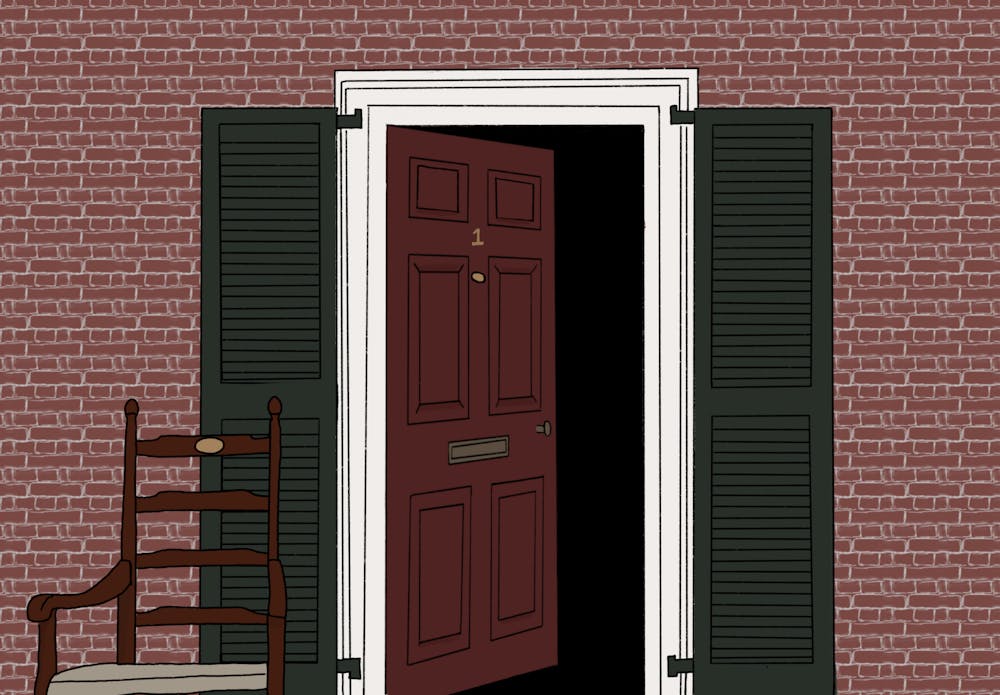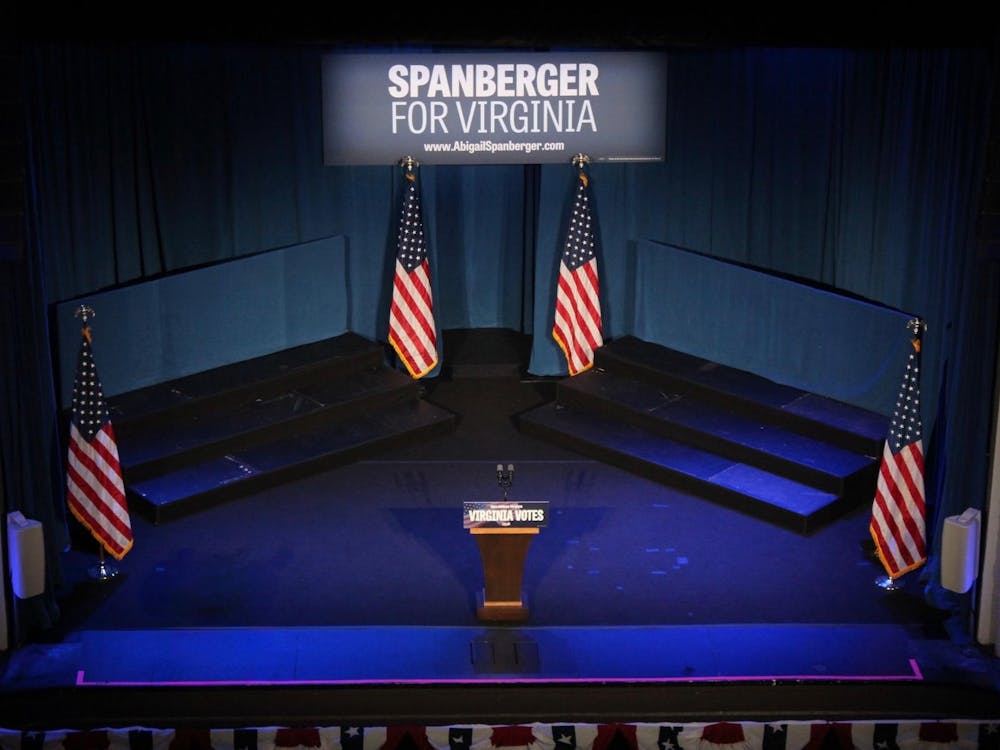This year, the Lawn Selection Committee received 177 applications from rising fourth-years hoping to live on the Lawn — granting Lawn rooms to 47 individuals. While 177 applications is an increase from last year, this relatively low number of interested students fits into a larger trend — application numbers have failed to surpass 230 since before the COVID-19 pandemic. In short, there seems to be decreased interest in living in Thomas Jefferson’s Academical Village, the center of our university’s history and community. While the University intends for living on the Lawn to be a sort of reward for excellent service and a privilege obtained by impactful students, the structures surrounding this housing option have increasingly conspired to decrease the privilege of becoming a Lawnie.
The Lawn, as the center of our University, carries huge historical and community-based significance. The Lawn is the reason we are the only American university designated as a UNESCO World Heritage site. It is where students convocate and graduate, where Trick-or-Treating engages the local Charlottesville community, where Lighting on the Lawn shines, and where some of us — allegedly — streak in the footsteps of a century-old tradition. Originally, the selection process for these rooms occurred in the same application as all other on-Grounds housing. But when renovations in the 1960s changed the traditionally double-bed Lawn rooms into singles, the high demand for the unique experience meant that a separate, competitive, application-based process was necessary. Today, the application is less competitive than it has been in years past but continues to emphasize both academic and extracurricular excellence as necessary prerequisites for obtaining the privilege of living on the Lawn, a privilege which costs $8,830 per academic year.
While students can receive financial aid to help counterbalance the sticker price of Lawn rooms, the timeline of Lawn applications and decisions undermines this outward financial accessibility, which, in turn, diminishes the privilege of living on the Lawn. The acceptances and rejections for a Lawn room come in the middle of February, far past the fall when students typically sign 12-month leases for their housing in the coming year. If applicants choose to live on Grounds, they are permitted to renege on their initial on-Grounds housing contract, a misleadingly generous concession on the part of the University given that few fourth-year students live on Grounds. Thus, many Lawn applicants are forced to sign off-grounds leases — and then sublet said lease if they are selected for a Lawn room — or scramble to secure exceedingly expensive housing if their Lawn application is rejected. The Lawn application timeline, then, makes applying for a Lawn room a stressful prospect and makes the privilege of becoming a Lawnie less accessible to less affluent students.
Moreover, when the Lawn room price is considered in concert with a Lawn room’s lack of key amenities, it is a noncompetitive option in contrast to more affordable apartments on and off-Grounds. First, the residents are equipped with no kitchen besides a microwave, so — for those uninterested in cup ramen everyday — a basic $3000 meal plan is a requirement tacked onto the sticker price of housing. Next, the outdoor bathrooms of the Lawn are uncomfortable at best and actively dangerous at worst. Ignoring various other quirks of living on the Lawn, the absence of these two major amenities fundamentally reduces the appeal of living in the Academical Village. Paying relatively high prices for these substandard accommodations suggests a lack of consideration for students who simply cannot afford to live like they are in the 1800s with a 21st-century sticker price.
It is not clear to us what a better application timeline or appropriate architectural renovations would look like in practice. However, the basic reality of the lawn room application process is that these factors have conspired to make living on the Lawn less of a privilege. This is blatantly obvious in the decreased application numbers. One clear way to revitalize this privilege, without fundamentally changing the architecture of the lawn or the timeline of the application process, is to subsidize the cost of the rooms. The Lawn could be made cheaper with a stipend that covers some of the cost, or perhaps, students could even live on the Lawn free of charge.
A past Editorial Board advocated for Resident Advisors to be paid. In the same vein of honoring the people who have made and continue to make outsized contributions to our community, the University must work to ensure that living on the Lawn is a genuine recognition of all the impressive work Lawnies do. Students who are selected for the privilege of living on the Lawn have spent their four years highly engaged in the University community. They have contributed extensively to the University’s mission, participating in and leading Special Status Organizations and Contracted Independent Organizations — all of which they have likely done without being paid.
The simple fact is that living on the Lawn is supposed to be a privilege but increasingly seems to be an inconvenience. If the University cares to change this unfortunate reality, one thing it can do is take steps to reduce — or eliminate — the costs associated with living in a Lawn room. By genuinely celebrating the contributions of the people selected to make the Lawn a home, the University can honor the work of student leaders and truly make Lawn life the privilege that it is intended to be.
The Cavalier Daily Editorial Board is composed of the Executive Editor, the Editor-in-Chief, the two Opinion Editors, their Senior Associates and an Opinion Columnist. The board can be reached at eb@cavalierdaily.com.







